Drexel’s Historic 2016 Convocation
 By Alissa Falcone
By Alissa Falcone
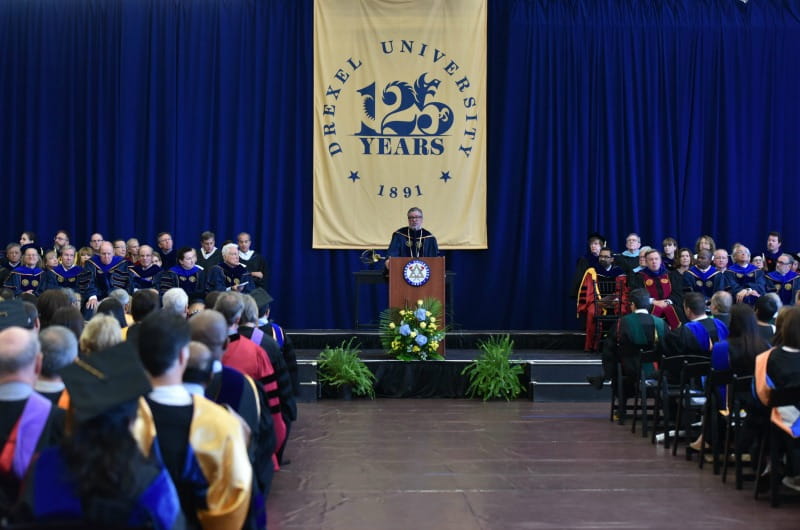
“Convocation is such a venerable tradition but like most traditions at Drexel, it’s always being improved on,” said President John A. Fry to explain why this year’s Convocation was an achievement of several Drexel “firsts.”
As in previous years, Convocation is the ceremonial start of the new academic year, though this time it was held on Sept. 16 before classes officially started. Convocation also signaled the beginning of Drexel’s efforts to celebrate its 125th anniversary. Graduate students joined Drexel’s distinguished faculty in the procession for the first time. And, for another celebratory piece of news, this year’s Convocation — featuring keynote speaker Michael M. Crow, PhD, president of Arizona State University — was held in the Recreation Center rather than the auditorium in Main Building to provide “a welcome new source of elbow room and air conditioning,” according to Fry.
“Even in a city as historic as Philadelphia, 125 years is a long time,” said Fry. “It’s certainly long enough for a University to develop its own time-honored traditions. But our greatest tradition, I would submit, has always been innovation.”
That tradition dates all the way back to 1891 with the opening of the then-Drexel Institute of Art, Science and Industry by the University’s founder, financier and philanthropist Anthony “Tony” J. Drexel.
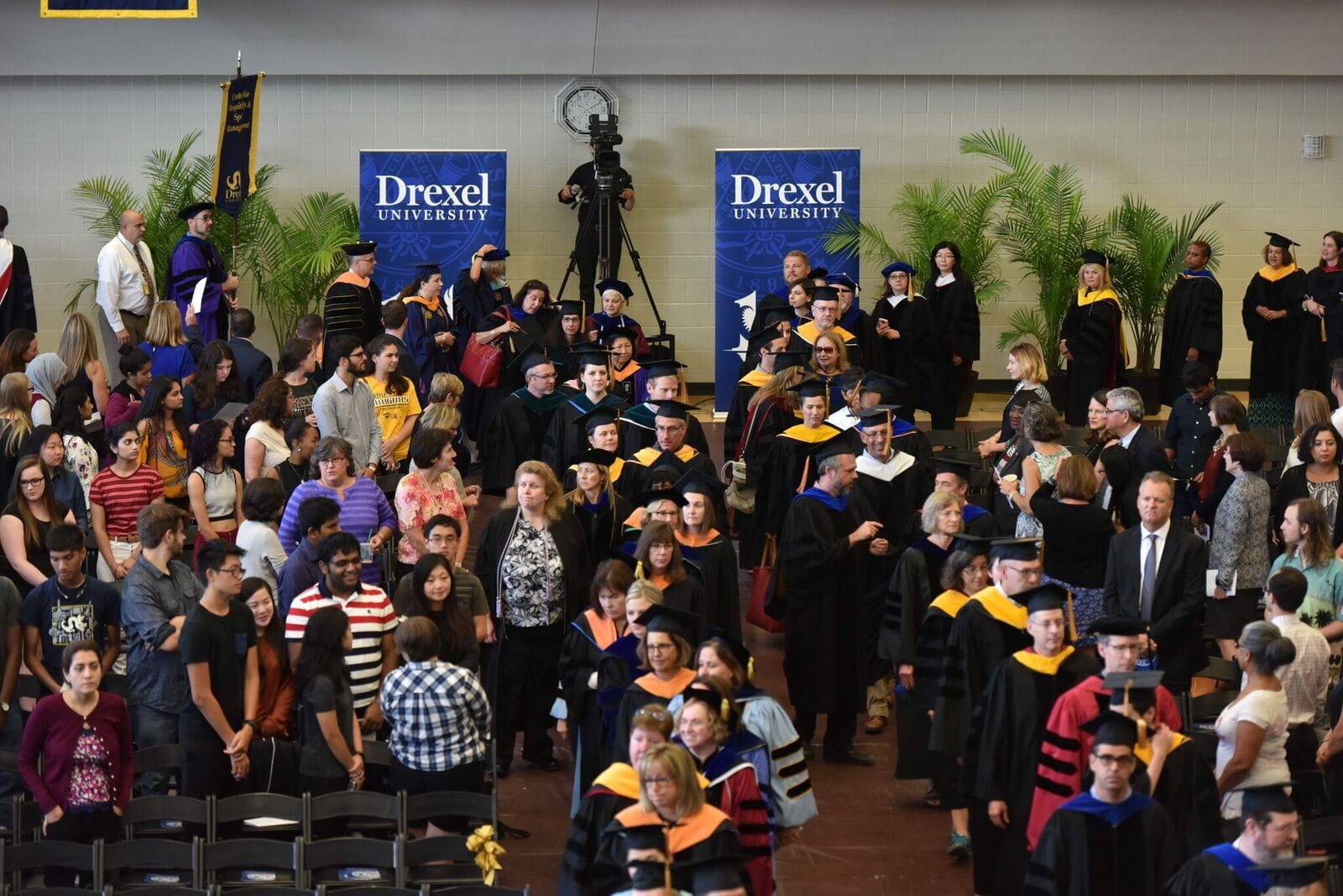
“Against the backdrop of America in the late 19th century, his goals for Drexel were innovative to the point of being radical,” said Fry. “As the founder once put it, he wanted a Drexel education to be ‘not only good, but good for something.’”
The founder’s vision has been realized during all of Drexel’s 125 years, with the co-op program being established in 1919 and Drexel becoming a global model for combining academic depth and excellence with intensive career discernment and preparation.
Tony’s founding mandate to provide a practical education to all future members of the work force regardless of gender, race, religion and socio-economic status has also been realized. This year’s incoming class of students was one of the most distinguished and diverse in Drexel’s history, according to Fry.
“That kind of inclusion is expected on all campuses in America today, but it was the exception in 1891,” said Fry. “I like to think that the head start we got 125 years ago set the stage for a strong commitment to inclusion and the kind of civic engagement that is such a big part of who we are today, especially here in Philadelphia.”
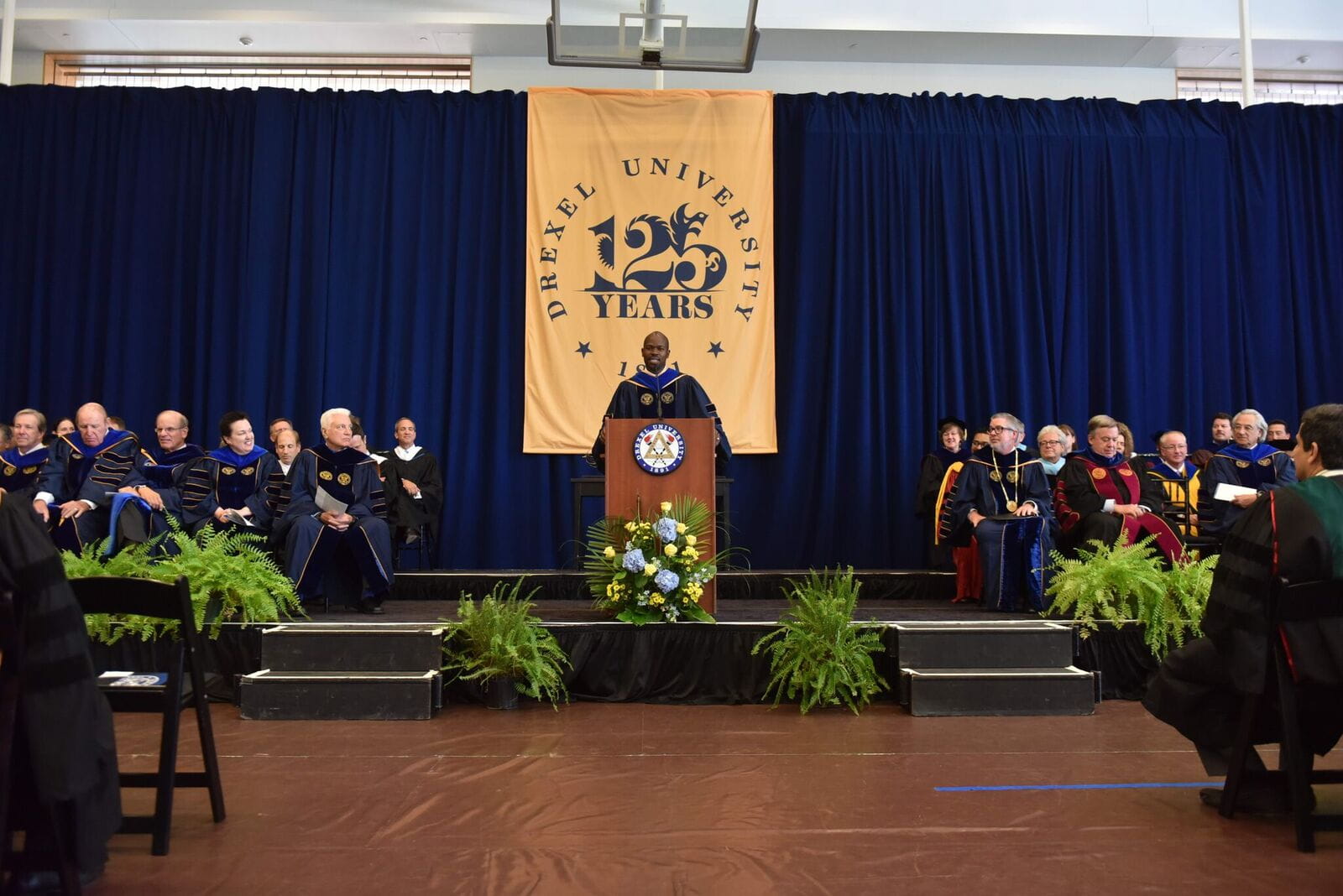
Fry gave updated examples on current Drexel projects that will help Drexel become the most civically engaged university in America, including the Schuylkill Yards project announced last spring that will develop 14 acres of underutilized industrial property into an innovation district with tall buildings, job and co-op opportunities and a public park to be known as Drexel Square.
Richard A. Greenawalt ‘66, chairman of the Drexel Board of Trustees, also spoke of Drexel’s present and future as a result of its illustrious past.
“Looking at how the campus had grown and developed into a model learning environment and a center of cutting-edge research, I sometimes wonder how our founder would marvel at all these changes,” said Greenawalt. “I know my fellow classmates at this year’s 50th anniversary certainly did so, but just imagine if the legendary financier and philanthropist could step out of the 19th century and be here with us today.”
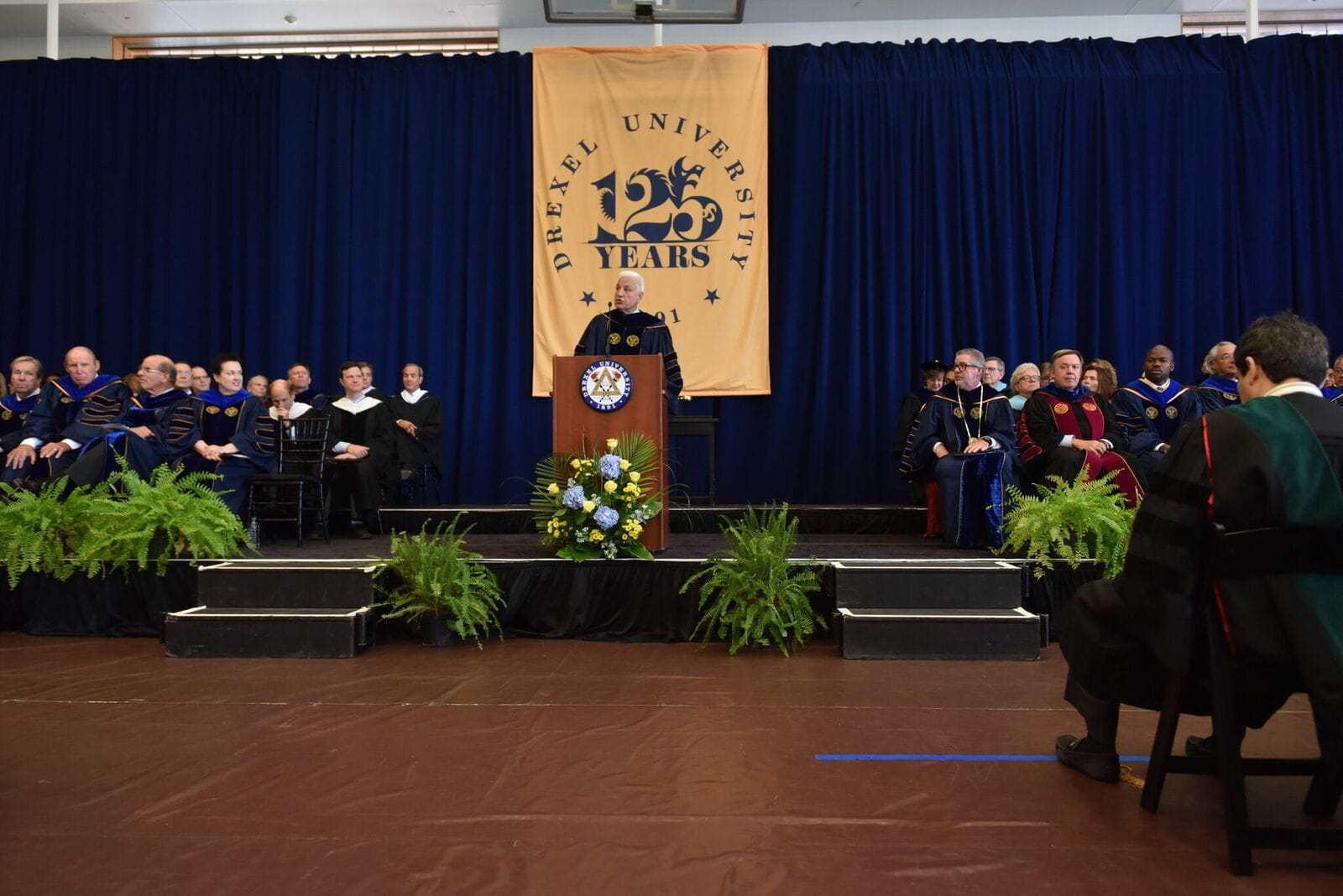
“Concentrating on articulating our value proposition naturally builds on our accomplishments since last Convocation,” he said.
This year’s Convocation was also about informing new Drexel students about the history and accomplishments of their University as well as giving advice on how to succeed and appreciate their Drexel experience and education. Crow, the keynote speaker, directly addressed the students multiple times about what they could accomplish at Drexel to become “master learners,” capable of learning anything.
"To you students, you are dropped in — parachuted in — to one of the most significant institutions that exists, with a faculty that has assembled to devote their lives to you,” said Crow. “The one outsider advice I would give to both the faculty and the students is to focus on mindset — the mindset of creating master learners and driving forward with those master learners to invent the future through design and the ultimate art: the art of learning.”
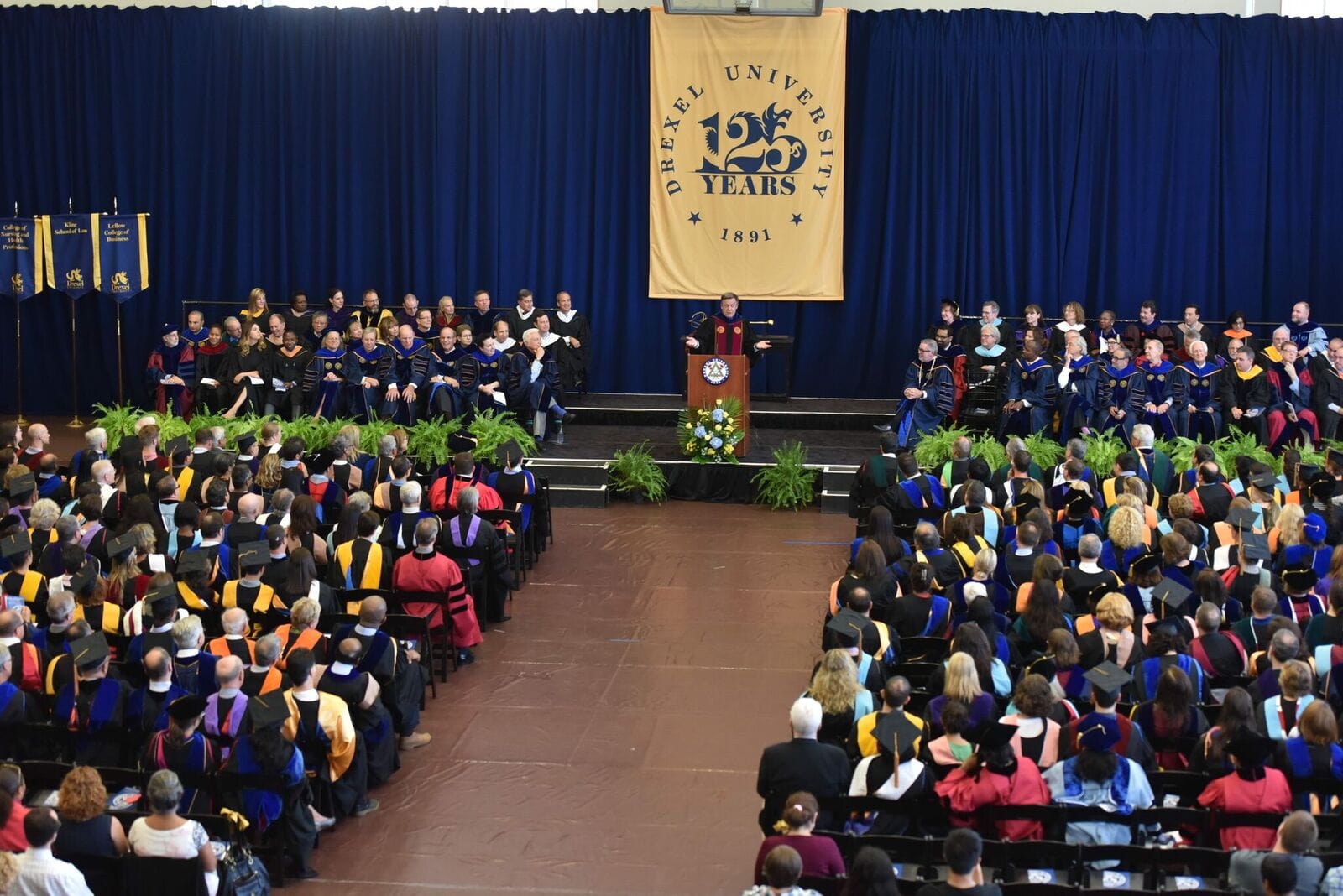
Remarks were also given by Anthony M. Noce ’80, chair of the Alumni Association; Brittany Tucciarone, president of the Undergraduate Student Government Association; and Jerry John Nutor, president of the Graduate Student Government Association. New faculty were then introduced by their respective academic deans and directors before Convocation concluded and the new academic year was officially on its way.
As Ludo C. P. Sheffer, chair of the Faculty Senate and teaching professor in the Department of Psychology in the College of Arts and Sciences, said to conclude his speech at Convocation: “May the Dragon be with you this new academic year.”
To watch a taped livecast of Convocation, click here.